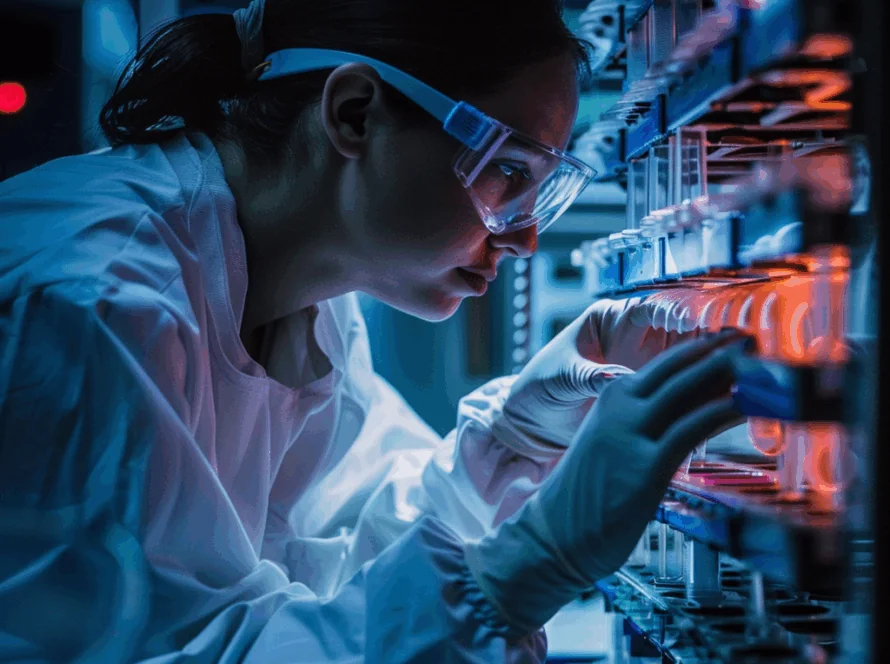The large-scale production of monoclonal antibodies (mAbs) is essential to meet the growing demand for targeted therapies. Recent advances in bioreactor design have significantly improved efficiency, scalability, and product quality— transforming the way biomanufacturing processes are conceived and executed.
Key Technological Advances:
- Real-Time Monitoring and Automated Control: Modern bioreactors are equipped with continuous monitoring systems and automated parameter control, optimizing the performance of cell cultures and ensuring consistent product yield.
- Single-Use Bioreactors: These offer a cost-effective and flexible alternative to traditional stainless-steel systems. Single-use technologies reduce contamination risks, simplify cleaning procedures, and lower operational costs.
- Perfusion Systems: By maintaining optimal nutrient and waste concentrations, perfusion systems enhance cell productivity and culture longevity, especially in high-density processes.
- Use of CFD and AI: Computational Fluid Dynamics (CFD) and Artificial Intelligence (AI) are now widely used to optimize mixing, aeration, and shear forces—boosting the overall efficiency and predictability of bioreactor systems.
- Hybrid and Modular Systems: These designs facilitate the transition from lab-scale research to commercial production, making it easier to scale up innovative processes while maintaining flexibility.
Conclusion
Innovations in bioreactor design are playing a critical role in enabling the efficient and high-quality production of monoclonal antibodies. With the integration of cutting-edge technologies such as real-time analytics, automation, CFD, and AI, the biopharmaceutical industry is better equipped to meet the increasing demands of modern medicine.
For a deeper dive, read the full article in The Journal of Commercial Biotechnology.



